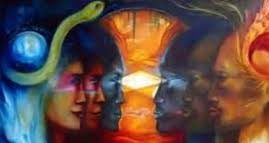“What cannot be talked about can also not be put to rest. And if it’s not, the wounds continue to fester from generation to generation,” said Bruno Bettelheim, world renowned psychologist.
Is there a collective trauma in the present generation of Hindus passed on by their ancestors about the destruction of their temples by Muslim invaders and emperors of the past, like the Kashi Vishwanath temple by Aurangzeb? If such a trauma has indeed been felt by successive generations of Hindus over centuries, has it been carried across generations as an un-festered wound in the form of a collective memory?
Called trans-generational trauma in psychology and understood as a major determinant of a social identity that exists through collective narratives and images carried over as historical memory, does this wound remains ready to burst open after being denied expression? Many people I asked do seem to think so.
While many Hindus, Muslims and Sikhs reacted to this question with indifference and denial, do some of them understand or even empathize with this trauma that the invaders and emperors of the medieval times may have caused? As an elderly Sikh scholar asked me once, “How do you think it must have been for our ancestors to stand by and witness places of worship being destroyed into rubble and our gurus being beheaded? Our ancestors may have witnessed it silently then but would they let such a trauma die? No. It lives in our very soul.”
My in-depth interviews as a psychologist over twenty years with scholars, religious leaders and activists has taught me a poignant lesson that the trauma is far from over ,needs healing and awaits closure.
Read about this trauma in my book ‘The infidel next door’, a novel that explores psychologically for the first time one of the most painful issues of the our generation.
Excerpt from the Book
‘That night she had a dream where a man with a face that resembled her husband sat in front of a Shivling in a faraway stone temple reciting mantras. There were mountains all around, and the snow on them glistened in the light. The air was cold and seemed to freeze everything it touched. In the distance, there was the sound of water from a river. Then, suddenly a sword from nowhere fell on the man’s head, severing it and felling it to the ground, turning the floor of the temple red. She had woken up in sweat to find Krishna Narayan sound asleep. She remembered her father telling her of the legend of the eleven families, who were the only ones to survive, after the genocide of Hindus in Kashmir five centuries ago who didn’t give in to demands to convert to Islam.’

